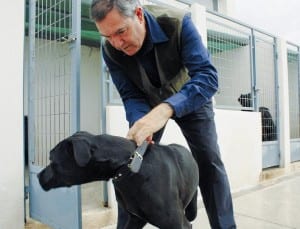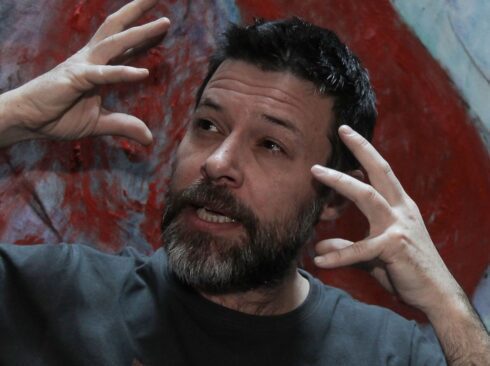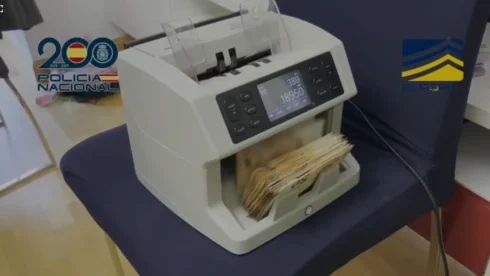ANGEL has seen many sides of the dog story. He divides his time between the shelter and traveling the world as a prominent judge of pedigree dog shows. In May, he flew out to judge in Slovenia and in June he was in Norway.
At the dog shows he mixes and mingles with the pedigree elite. When he comes home to Granada, he spends his days in the small dog shelter, helping find homes for the stray animals of Andalucia. “The dog judging is just a hobby,” he says humbly. “My real work is the shelter and animal welfare education in Andalucia.”
For over 29 years Angel has worked in pedigree pageantry and simultaneously ran the shelter. “Our shelter was founded by a group of people from the pedigree show world. We wanted to give back to all dogs. Most of the contributors and members of the welfare society are still affiliated with dog shows,” Angel says.
Although, the two worlds are often like night and day to him. Pedigree dogs have waiting lists for breeding while shelter dogs just wait.
“Some shelter years have been better than others,” Angel says, “There have been booms in adoptions, but recently it’s worse. We were once located directly in Granada, but officials wanted us further from the city.
They wanted our space and we were moved. They built this new shelter for us, but it is far from the city.
We are harder to find now. When we were closer, there was support from the politicians and we were visible to the people. So much of this is about politics and money. Years ago there was a doctor who was a provincial politician; he was favorable towards animal welfare and rabies control. We received funding, support, and guidance. After his term ended, very few cared about us.”

Greater numbers of people are abandoning their pets at the shelter’s door. At 12:30 pm, two men drove up and left their small white dog, Luna. When Angel inquired why, they said they were moving to Barcelona in search of work and could not keep the dog. Financial hardships have contributed to more homeless dogs’ as owners leave town to find jobs. Many are also new immigrants from South America or Eastern Europe who came with hopes of working here. When they leave Spain, they leave their dogs behind.
Recently passed laws require better animal management, though authorities and citizens are slow to act.
Angel thinks education is the problem. “The authorities don’t put money into welfare education and strategies. Instead, they’ve instituted a new policy for the shelters. Each adopted dog must be micro-chipped and vaccinated. This costs the adopter about 40 euros plus the 30 euro adoption fee. There is no financial help from the officials for this.
If a previous owner surrendered the dog, it is hopefully already up-to-date with shots and micro-chipped, so there is only the small charge for changing the chip’s information.”
Besides the economy and the slow start of animal welfare enforcement, there is the problem of a divided animal welfare system from region to region. “Andalucia is against cropping the ears of a dog, but its okay in Murcia. Someone can easily drive to Murcia to crop the ears of their dog. We are not equally prepared or vigilant in our animal laws and this leads to over-population and mistreatment.” Angel says.
There are also realties regarding the sale of puppies from puppy stores that must be faced. “People think its better buying a dog from a puppy store. They don’t know that some of the dogs come from puppy farms in Eastern Europe, Hungary or the Czech Republic, where farms have poor health and breeding conditions. Due to overcrowding, bad hygiene, and the lack of veterinary examination, the puppies often develop problems that last for life. Our authorities don’t care about importing sick dogs. When the owner realises, the dog ends up here, too sick to be adopted.”
“Greater numbers of people are abandoning their pets at the shelter’s door”.
Yet, the biggest and most obvious problem is over-population. Angel’s shelter is authorised to euthanise animals that don’t get adopted within a certain period of time. “This is a short- term solution as stray dogs and cats continue to mate and produce litters. Short- term solutions appear cost- effective, but this is not the answer,” Angel says.
“The real solution is spaying and neutering,” Angel adds. “If the animals are sterilised, eventually the strays die off. We have so few veterinarians who want to perform neutering and spaying operations for shelter dogs. They want to make money, have their own clinics. We cannot afford to pay their fees. A few times a year we are fortunate to get assistance from organisations outside of Andalucia: The Kismet Account, Samaritans Abroad, and an independent Russian veterinarian. If the laws were to favour neutering and spaying over euthanising, this would finally be an answer. In the future, we hope the vets will reach out to us and become more involved in the protection of stray animals.”
There are goals Angel hopes to reach to improve Andalucia’s animal welfare system: Educate the public about spaying and neutering, thereby reducing the number of unwanted animals; create low-cost identification programs to help re-unite strays with their families; and help for owners struggling with problem dogs. This, however, is a lot of work for one man and his small team of shelter staff. He often tries to work with other organisations and local shelters.
“The truth is that there are some people won’t work with us because we are a shelter that puts dogs to sleep, but there are shelters that will not take aggressive dogs or sick dogs. In the end those dogs come to us,” Angel states. “There are people who won’t work with pure breed dogs, dog pageants, or puppy stores. I will not close the door to anyone. When we work together you open the market. You never know who you will meet that will help change the system or save an animal. You can learn something from everyone”.

A number of shelters though, are working together on some projects, like developing a platform for Andalucian animals. “Anybody interested should get involved by volunteering, adopting, or donating,” urges Angel.
Angel learned from his work with pageant dogs that if a dog is considered valuable, it is less likely to be treated badly. With this knowledge he is working to save a breed native to Andalucia, the Podenco. “I own several Andalucian Podencos and I am working to dignify the breed. They aren’t so valuable yet. They were bred as rabbit hunting dogs and are popular with provincial hunters. They treat the dogs as a commodity and they are often abandoned after the hunting season. But, if a breed is important it becomes valuable and then people become emotionally involved. Unfortunately, our society uses dogs as a status symbol, and shelter dogs are not a status symbol. We often get abandoned Podencos and Podenco mixes in our shelter.
If this dog becomes more valuable, it will be protected. Just look at the Akita breed in Japan, they are now a national monument. Imagine the Podenco in that role; they would no longer be abandoned.”
With so many years of struggling for humane animal treatment, Angel remains optimistic, “I have seen a slow shift in the mentality of the Spain’s youth,” he says meditatively. “They are becoming more kind-hearted. If the family comes to drop off a dog, the children are more concerned. They are becoming more sensitive to the predicament of animals and nature. I can only hope that the new generation will be better.”
Angel Garach and the Centro Provincial de Acogida de Animales can be reached at GRASPAP@gmail.com.







Thank you so much for writing this beautiful article in order to expand awareness on the problem of abandoned dogs. I hope more people will learn about the situation and will take interest in helping this crisis, either by volunteering or adopting. Keep up the beautiful work you are doing. I hope to come visit your shelter and help out when I come out to Spain.
Yes, excellent article and appropriate mentality. We have some great vets and wonderful rescue people here in the east of Malaga but all are overwhelmed by numbers. Irresponsible people, death of an elderly carer, and cruel ignorance by hunters contribute to the problem.
As anti-cruelty is a plank of Citizen Advocacy I welcome a platform for solution – finding.After re-homing nearly 60 dogs, lost or abandoned or in need of post-op. care I thought I had had finished hands-on care. I needed to, for health reasons, but no, more came and two taken from a refuge west of Malaga have between them kennel cough, tick fever, pneumonia and distemper. And who picks up the bill?
Sometimes associations like Xana can assist, at other times money is all used up. So the indivisual rescuer is ‘blackmailed’ into rescuing and paying for someone else’s crime or irresponsibility.
The other issue is that with larger dogs or young sprightly ones such aas podencos they can often jump garden walls and Guardias want to issue fines. For elderly people – who are often the new carers this is not tenable. They cannot contain them, not walk then sufficiently.
Seprona Guardia at Velez Malaga said that that Twon Halls should offer enclosed land to help with their exercise without carers having to break laws. This is an excellent idea if the Town Halls will conform. It should be an obligation and the National Association of Hunters should also be made to contribute, in my opinion. They lose or abandon so many dogs.
I would like to see pet care taken under the umbrella of the Heritage umbrella. There is money for restoring old stones and relics; why not invest in our Living Heritage and show the results of healthy happy animals with pride.
Stones don’t cry and grieve; they don’t whimper and grovel
in fear. But living creatures dumped and abandoned, forced to fight (baiting) and hunt, do. Hanging and shooting off their legs is not uncommon, I am told.
Yes, Heritage Department, let this come under your preservation banner.Indeed Health, Education and Heritgage ought to have a joint co-ordinating committee and a financial responsibility for this issue.
Angel, if you wish to help form the platform there are many loving, caring vets and organisations who would support you east of Malaga.
If you wish to make contact with this e mail number perhaps Citizen Advocacy can help co-ordinate this as it has been on the agenda for some time. We have urged Perro Parks for house-restricted animals.
Competent bi-lingual advocates are the most needed people in this operation.
Very Best Wishes, Christine A. Ferguson
Citizen Advocacy